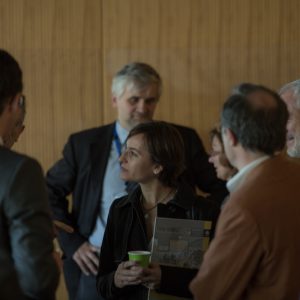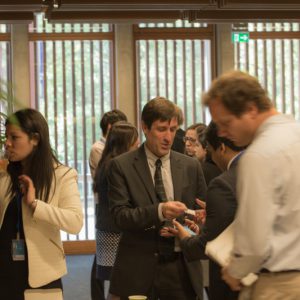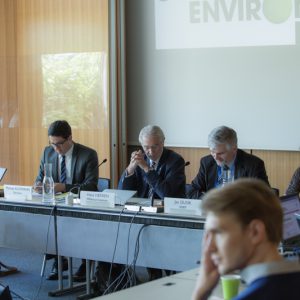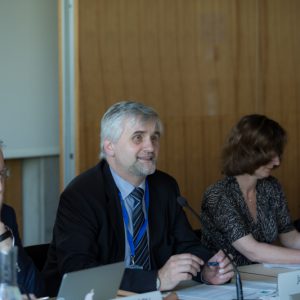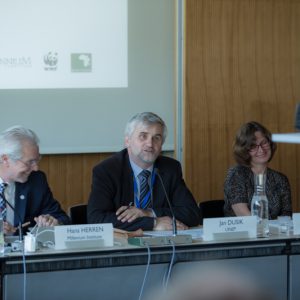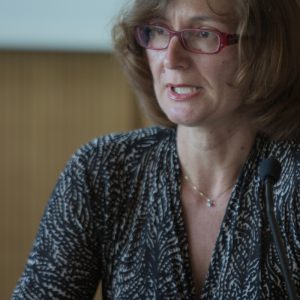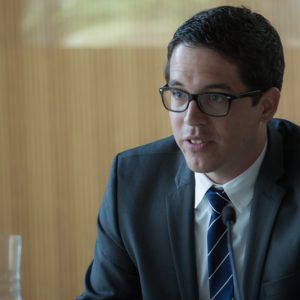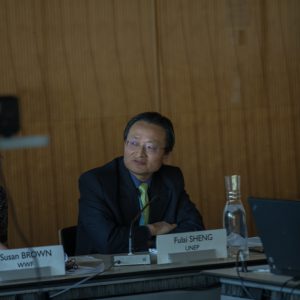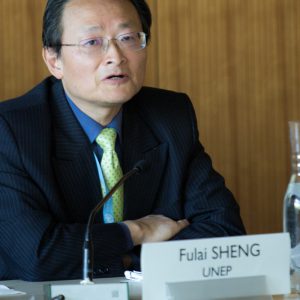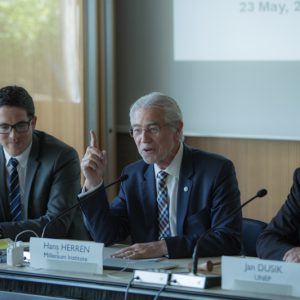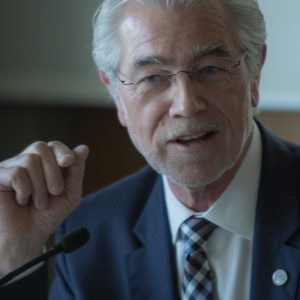Événement
Sustainable Development Goals | tools for implementation and mainstreaming

23 May 2014
11:00–13:00
Organisation: Geneva Environment Network
Sustainable Development Goals: human development at the crossroads
How to make the post-2015 global agenda more effective than the MDGs, which have not been met ? On the occasion of this roundtable, panellists presented their complementary contributions and insight into the SDGs process.
Agenda
– SDGs: current and next steps
– How green economy can be an instrument for delivering SDGs
– Tools for sustainable strategy (country level)
– Contribution of civil society and non state actors
With
Jan DUSIK, UNEP Regional Director
Hans R. HERREN, Millenium Institute President & CEO
Fulai SHENG, UNEP Economics and Trade Branch
Susan BROWN, WWF International Global and Regional Policy Director
Michael RÜTIMANN, Biovision Foundation Policy Advisor
The session started by a video message from David Nabarro, UN Special Rapporteur for Food and Security.
The contributors
The Millennium Institute
Millennium Institute (MI) is an independent and non-partisan nonprofit organization committed to promoting systems literacy and dynamic modeling tools to attain sustainable development worldwide. By providing these tools, MI empowers people and governments to build societies that are peaceful, equitable and sustainable.
- Since inception, we have explored many ways to achieve our mission. In the last two decades, our approaches included:
- public education on the reality that everything is interconnected and interdependent, and the importance of sustainability
- building strategic collaborations with institutions such as UN agencies, the World Bank, and the Carter Center, to institutionalize dynamic modeling at higher political levels
- engaging spiritual leaders in dialogue on critical issues confronting the world during meetings of the Parliament of the World’s Religions
- training college students on campuses to prepare national studies on ending hunger
Today, MI remains a pioneer and dedicated promoter of dynamic modeling and integrated analysis for long term national development planning that promotes sustainability. Our flagship model, Threshold 21 (T21) has been customized for about twenty industrialized and developing countries around the world, many of which are now being institutionalized. Click here to learn more about where we work.
Hans R HERREN, Millenium Institute President & CEO
Hans Herren is an internationally recognized Swiss scientist, notably for his work on biological pest control and sustainable agriculture. Educated at the Swiss Federal Institute of Technology Zurich (ETH Zürich), Hans holds degrees in entomology and biological pest control. He also spent two years at the University of California, Berkeley conducting post-doctoral research.
Hans began his career at the International Institute of Tropical Agriculture (IITA) in Nigeria, first as Director of its Biological Control Programme, then from as Director of its Plant Health Management Division. During this time, he worked on biological pest control programmes for the cassava mealy bug, cassava green mites and the mango mealy bug as well as integrated pest management programmes for other pests of cowpeas and maize. He also founded the Biological Control Centre for Africa in Cotonu, Benin. He then assumed the position of Director-General at the International Centre for Insect Physiology and Ecology (icipe). Under his leadership, the Centre developed the 4-H paradigm (the integration of Human, Animal, Plant and Environmental Health into a single framework for research and development), the Push-Pull method to fight the stem borer and the striga weed, which constitute a big threat to small-scale farmers growing maize in Africa.
Since 2005 Hans has headed the Millennium Institute in Washington D.C., which helps decision makers understand the interconnectedness between economic, social, environmental factors, and issues of peace and security through a variety of tools and advisory services.
Additionally, Hans serves on the boards of numerous organizations, including co-chairing the International Assessment of Agricultural Knowledge, Science & Technology, (IAASTD); chairman of BioVision (which he founded in 1998), a Swiss foundation with a global mandate to alleviate poverty and improve the livelihoods of poor people while maintaining the precious natural resource base that sustains life; president of the International Association of the Plant Protection Sciences (IAPPS); and member, US Board of Agriculture and Natural Resources (BANR).
Mr. Herren has won a number of awards, including the World Food Prize (1995), the One World Award from Rapunzel (2010) and the Tyler Prize for Environmental Achievement from the University of Southern California (2003) and most recently, the 2013 Right Livelihood Award/ Alternative Nobel Prize for leading a major biological pest management campaign in Africa, successfully fighting the Cassava mealy bug and averting a major food crisis that could have claimed an estimated 20 million lives.
UNEP Green Economy and SDGs
There is a UNEP-wide process contributing to the SDG discussions. UNEP’s comments on the most recent OWG document for the 11th Session can be summarised to emphasize three areas: 1) the document has done a better job than any previous effort to bring together a diverse range of issues and concerns; 2) there should be a better integration of the three dimensions of sustainable development across the 16 focus areas, especially the integration of the environmental dimension into socioeconomic dimensions; and 3) the socioeconomic opportunities from addressing environmental issues should be better reflected.
Rio+20 outcome document establishes green economy (GE) as a tool to achieve sustainable development (SD). It also gives a mandate to negotiate SDGs. How to connect these two streams of work? First, SD can be visualised as a general destination (e.g. South America). Second, SDGs are more specific destinations (e.g. Chile or Argentina), and could be even more specific when SDGs are translated to the national level (e.g. Buenos Aries). Third, GE is a vehicle (tool) to carry us towards our desired destinations.
Green Economy as a vehicle has at last four wheels: clean technology (or clean physical capital), natural capital, human capital, and social capital (including governance). “Priority seats” are reserved for the poor. The “power” to drive the vehicle is investment (into the “four wheels”). Investment is a unique instrument that can generate multiple benefits along the social, economic and environmental domains. Many existing investments are powering vehicles that take us to wrong destinations.
Specific analytical instruments such as T21 (Threshold 21) can help translate goals and targets into actionable plans. It can show what needs to happen – in terms of investments and policies – to attain the goals and targets.
More about UNEP and Post-2015…
Fulai SHENG, UNEP Economics and Trade Branch
Fulai Sheng is currently the head of UNEP’s Green Economy Research Team based in Geneva. His areas of expertise include environmental economics and integrated public policy-making. Since 2008 he has been leading the implementation of UNEP-led Green Economy Initiative, which aims to motivate and enable governments and businesses to invest in environmental sectors as new growth drivers. Mr. Sheng holds a Masters degree in economics from the Shanghai University of Finance and Economics (1985). Prior to joining UNEP in 2005, for over twenty years, he had served the Chinese Ministry of Finance, the World Bank, WWF International, and Conservation International. His major publications include: Real Value for Nature – An Overview of Global Efforts to Achieve True Measures of Economic Progress; Comparative Assessment of Development Options; Macroeconomic Policies, Poverty and the Environment (co-author); Rights, Wants and Needs: Economic Instruments and Biodiversity Conservation, and Integrated Policymaking for Sustainable Development: A Reference Manual (co-author).
WWF and SDGs
The extent to which environmental concerns are embedded in the Sustainable Development Goals will have profound consequences on conservation efforts and sustainable development around the world and on WWF’s mission. As the largest environment NGO with the broadest reach, WWF is working to ensure that environmental considerations are embedded throughout the post-2015 development framework. WWF considers the SDGs to be a unique opportunity to better value natural resources and healthy ecosystems as a foundation for poverty eradication, equitable and inclusive growth and sustainable development. To that end, WWF advocates for an integrated and balanced vision for sustainable development based on the inter-linkages between the three dimensions – environmental, social, economic – and is proposing a set of targets that underpin this vision.
Susan BROWN, WWF International Global and Regional Policy Director
Susan Brown is Director, Global and Regional Policy, WWF International. In this role she is responsible for leading and facilitating research, policy and advocacy across a broad range of issues and multilateral dialogues. The WWF Network has a presence in around 100 countries, has 5,000 staff and a conservation spend of around CHF 500M per year.
During her 9 years at WWF, Susan has led delegations, positioning andcontent for policy dialogues such as MDGS, SDGs, CBD, UNGA processes, Rio+20, APEC, ASEAN, G20, OECD and other high level panels, summits and events. She created the Hot House research and advocacy unit and developed measures to increase coherence on WWF policy engagement across countries,regions and programmes in the areas of economics, security and strategic issues, development, biodiversity, social issues, trade and health.
Previously, Susan spent 5 years as a journalist – publishing environment,political, governance, economic, Indigenous and legal articles in the form of news, feature, opinion and analysis pieces in most of Australia’s major broadsheet newspapers and a number of legal, business and other journals.
From 1994 to 2000, she worked as a senior political and legislative advisor for the Leader of the Democrats in Australia, during which time they held the balance of power in Australia’s Senate. She provided strategic and political advice across a number of portfolios including energy, resources,environment, tourism, science, technology, transport and Indigenous affairs. She played a key role in a total overhaul of Australia’s federal environment legislation and developed environment policy and energy reforms in packages accompanying a comprehensive new federal taxation system. She was advisor to the Chair of the Senate Committee on Environment and specialised in collaborating with other political parties, many corporate representatives and civil society groups to bring forward negotiated deals on often contentious issues.
Biovision and SDGs
In a world where we already produce enough food to feed the 9 billion projected for 2050, 848 million people worldwide – one child in five – still go hungry. Food security and nutrition for all, through sustainable agriculture and food systems, must therefore be set as one of the fundamental goals of global development. As such, Biovision works to facilitate a holistic, integrated and inclusive approach that promotes a shift towards sustainable agriculture and food systems with positive economic, environmental, and social impacts is necessary: Nourish our people, nurture our planet! Thus, to have an effective set of Post-2015 goals, priority must be given to productive and resilient food systems, smallholder farmers, in addition to addressing the major role that women play along the food chain, addressing hunger and malnutrition, the challenges of food loss and waste, and the needed reforms to agricultural subsidies, trade policies and market access. Furthermore, the achievement of targets and transformation needs to be informed by regular global, regional, and national multi-stakeholder assessments on sustainable agriculture and food systems; while progress on the Post-2015 Goals needs to be measured and monitored by independent bodies with the relevant knowledge, competence and capabilities.
More about Biovision and SDGs…
http://www.biovision.ch/en/projects/international/changing-course-in-global-agriculture/
http://www.biovision.ch/fileadmin/pdf/d/news/messages_HLRT_29-03-2014_final.pdf
Michael RÜTIMANN, Biovision Foundation Policy Advisor
A graduate in political sciences from University of Lausanne, Michael Rütimann works as a project manager and policy advisor for the post-2015 development agenda. He advocates for the prominent uptake of food and nutrition security through a shift towards sustainable agriculture and food systems in the framework of the Sustainable Development Goals (SDGs). Over the past year, Michael has been actively following and engaging in the debates and negotiations of the Open Working Group on SDGs in New York. He also frequently travels to Senegal to collaborate in the country-level pilot project with various stakeholders.
Before joining Biovision, Michael has for several years worked for a mid-sized Swiss consulting firm advising federal departments and cantonal governments. In 2012/2013, Michael was working for the Swiss Humanitarian Aid unit in Liberia, among others on the topic of food and nutrition security. In his spare time, Michael has been the International Commissioner for the Swiss Guide and Scout Movement.
Discussion
Following questions and remarks from Canada, ICTSD, IUCN, GE-Change, the Former Head of Switzerland Federal Office and the News for Environment, provided additional information on integration and maintreaming issues, Ministers committments and government compliance, Switzerland positive engagement, creation of a light-mainded group, trade policies issues in the debate, investment in sound technologies delivering tangible growth, means of implementation, the transparency of the discussions.
More information
https://www.genevaenvironmentnetwork.org/wp-content/uploads/2020/05/invitation_23_may_2014_0.pdf
https://www.genevaenvironmentnetwork.org/wp-content/uploads/2020/05/mi_unep_gva_2014.pdf
https://www.genevaenvironmentnetwork.org/wp-content/uploads/2020/05/slide_michaelrueitmann.pdf


